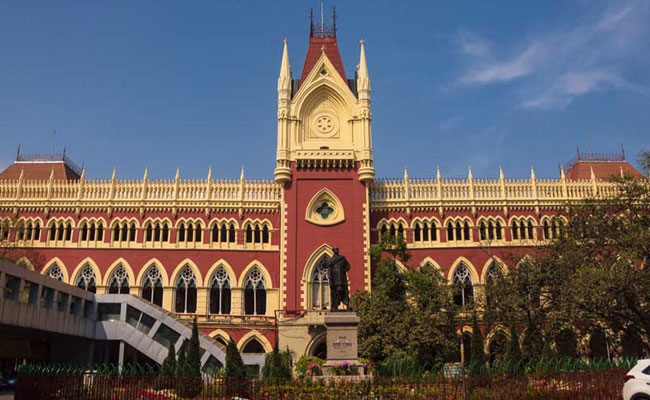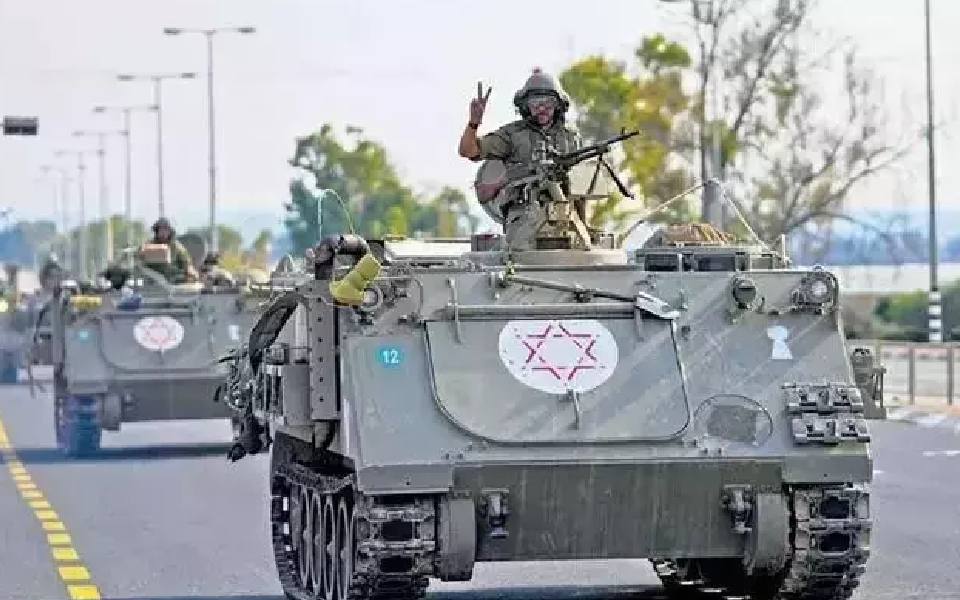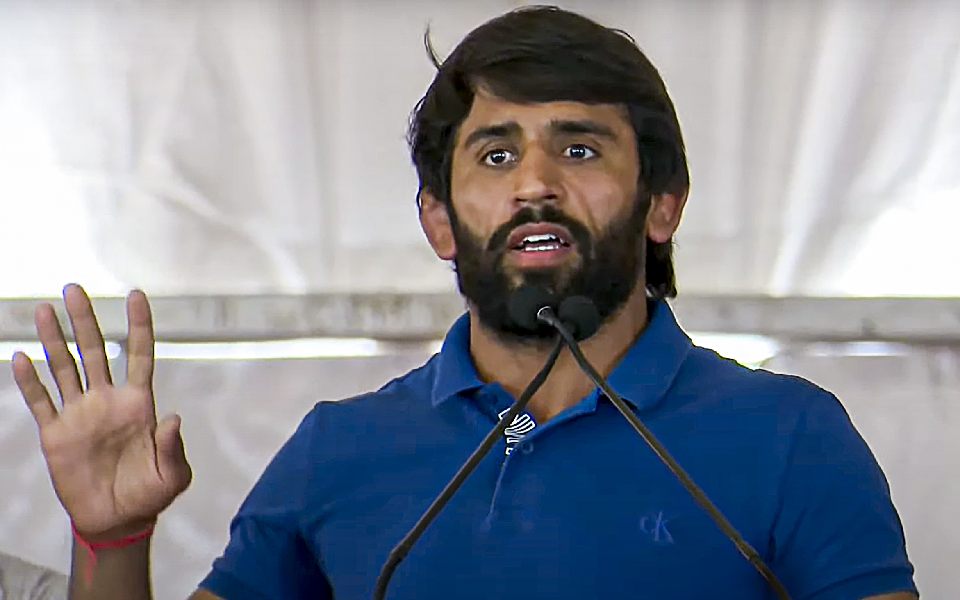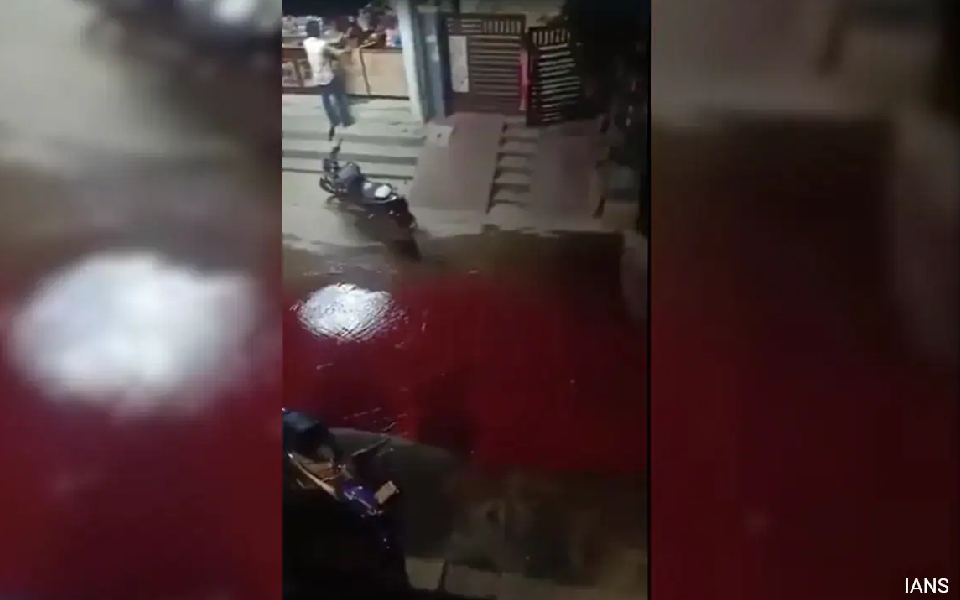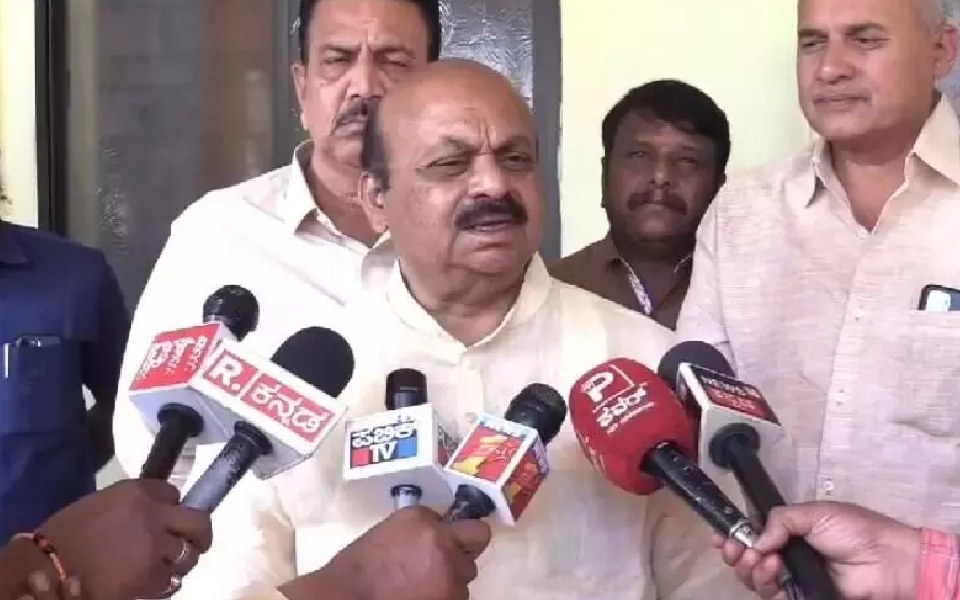Kolkata (PTI): The Calcutta High Court has ordered a CBI investigation into the alleged custodial torture of a woman who was arrested over the protests against the rape and murder of a doctor at the RG Kar Medical College and Hospital.
Two petitioners, both women, alleged physical abuse by the police during their detention, the court said, while noting that a report of a jail official confirmed such act on one of them.
Justice Rajarshi Bharadwaj on Tuesday directed the CBI to conduct a thorough investigation into the alleged physical torture that took place during police custody of one of them from September 8 to September 11.
"The decision to transfer the matter to the CBI is based on the need for an impartial and independent inquiry into the serious allegations of custodial torture," the court observed.
Justice Bharadwaj said that given the alleged involvement of police authorities, an investigation by a local law enforcement agency might present a conflict of interest.
"The CBI is instructed to identify the police officers involved and to undertake appropriate legal proceedings against those responsible for such act in accordance with the law," the court said.
The two petitioners submitted that they participated in several peaceful rallies demanding justice in the brutal rape and murder of the doctor at the RG Kar hospital on August 9.
They maintained that their participation in these lawful demonstrations is protected under Article 19 of the Constitution, which guarantees the right to freedom of speech and peaceful assembly.
It was stated that on September 8, the first petitioner was arrested by officers from Falta police station in South 24 Parganas district following a complaint by a woman.
It was also stated that the charges filed against her included several sections of the Bharatiya Nyaya Sanhita (BNS), 2023, as well as provisions of the Protection of Children from Sexual Offences Act (POCSO), 2012 and the Information Technology Act, 2000.
The court further noted that the second petitioner was arrested on August 27 while participating in the Nabanna Abhiyan rally organised by 'Chhatra Samaj'.
Although initially released on bail after being charged under several sections of the Bharatiya Nyaya Sanhita, 2023, the Prevention of Damage to Public Property Act, 1984, and the West Bengal Maintenance of Public Order Act, 1972, she was rearrested on September 7.
She, too, was implicated under the same Falta police station case as the first petitioner.
Both petitioners were produced before the district and sessions judge, special court (under the POCSO Act) at Diamond Harbour, on September 9.
Their requests for bail were denied, and they were remanded to police custody, followed by judicial custody. It was stated that the petitioners were granted bail on October 5.
Advocate General Kishore Dutta, appearing for the West Bengal government, submitted that the petitioners had been lawfully arrested and detained based on credible allegations against them.
He further stated that the petitioners, contrary to their claims of participating in peaceful protests, were involved in activities that violated legal provisions.
The high court noted that upon reviewing the medical report submitted by the superintendent of the Diamond Harbour sub-correctional home, it is evident that the second petitioner was subjected to physical torture while in police custody.
The court observed that in the present case, there is no "reason to believe" that the petitioners are involved in any illegal activity, as the FIR, along with the material collected in support thereof, does not disclose any credible evidence or establish the commission of an offence.
Passing the order, Justice Bharadwaj directed the state to file an affidavit in opposition to the averments made by the petitioners in four weeks and reply to it by the petitioners in another one week.
The court directed the investigating officer of the CBI to file a report before it by November 15.
The matter will appear for hearing again on November 18, the court directed.
Let the Truth be known. If you read VB and like VB, please be a VB Supporter and Help us deliver the Truth to one and all.
Beirut, Nov 26: Israeli Prime Minister Benjamin Netanyahu said Tuesday that he would recommend his cabinet adopt a United States-brokered ceasefire agreement with Lebanon's Hezbollah, as Israeli warplanes struck across Lebanon, killing at least 23 people.
The Israeli military also issued a flurry of evacuation warnings — a sign it was aiming to inflict punishment on Hezbollah down to the final moments before any ceasefire takes hold. For the first time in the conflict, Israeli ground troops reached parts of Lebanon's Litani River, a focal point of the emerging deal.
In a televised statement, Netanyahu said he would present the ceasefire to Cabinet ministers later on Tuesday, setting the stage for an end to nearly 14 months of fighting.
Netanyahu said the vote was expected later Tuesday. It was not immediately clear when the ceasefire would go into effect, and the exact terms of the deal were not released. The deal does not affect Israel's war against Hamas in Gaza, which shows no signs of ending.
The evacuation warnings covered many areas, including parts of Beirut that previously have not been targeted. The warnings, coupled with fear that Israel was ratcheting up attacks before a ceasefire, sent residents fleeing. Traffic was gridlocked, and some cars had mattresses tied to them. Dozens of people, some wearing their pajamas, gathered in a central square, huddling under blankets or standing around fires as Israeli drones buzzed loudly overhead.
Hezbollah, meanwhile, kept up its rocket fire, triggering air raid sirens across northern Israel.
Lebanese officials have said Hezbollah also supports the deal. If approved by all sides, the deal would be a major step toward ending the Israel-Hezbollah war that has inflamed tensions across the region and raised fears of an even wider conflict between Israel and Hezbollah's patron, Iran.
The deal calls for a two-month initial halt in fighting and would require Hezbollah to end its armed presence in a broad swath of southern Lebanon, while Israeli troops would return to their side of the border. Thousands of Lebanese troops and UN peacekeepers would deploy in the south, and an international panel headed by the United States would monitor all sides' compliance.
But implementation remains a major question mark. Israel has demanded the right to act should Hezbollah violate its obligations. Lebanese officials have rejected writing that into the proposal. Israel's Defense Minister Israel Katz insisted on Tuesday that the military would strike Hezbollah if the U.N. peacekeeping force, known as UNIFIL, doesn't provide “effective enforcement” of the deal.
“If you don't act, we will act, and with great force,” Katz said, speaking with UN special envoy Jeanine Hennis-Plasschaert.
The European Union's top diplomat, Josep Borrell, said Tuesday that Israel's security concerns had been addressed in the deal also brokered by France.
“There is not an excuse for not implementing a ceasefire. Otherwise, Lebanon will fall apart,” Borrell told reporters in Italy on the sidelines of a Group of Seven meeting. He said France would participate on the ceasefire implementation committee at Lebanon's request.
Bombardment of Beirut's southern suburbs continues
Even as Israeli, US, Lebanese and international officials have expressed growing optimism over a ceasefire, Israel has continued its campaign in Lebanon, which it says aims to cripple Hezbollah's military capabilities.
An Israeli strike on Tuesday levelled a residential building in the central Beirut district of Basta — the second time in recent days warplanes have hit the crowded area near the city's downtown. At least seven people were killed and 37 wounded, according to Lebanon's Health Ministry.
Three people were killed in a separate strike in Beirut and three in a strike on a Palestinian refugee camp in southern Lebanon. Lebanese state media said another 10 people were killed in the eastern Baalbek province. Israel says it targets Hezbollah fighters and their infrastructure.
Earlier, Israeli jets struck at least six buildings in Beirut's southern suburbs. One strike slammed near the country's only airport, sending plumes of smoke into the sky. The airport has continued to function despite its location on the Mediterranean coast next to the densely populated suburbs where many of Hezbollah's operations are based.
Israeli military spokesman Avichay Adraee issued evacuation warnings for 20 buildings in the suburbs, as well as a warning for the southern town of Naqoura where UNIFIL is headquartered.
UNIFIL spokesperson Andrea Tenenti told The Associated Press that peacekeepers will not evacuate.
Other strikes hit in the southern city of Tyre, where the Israeli military said it killed a local Hezbollah commander.
The Israeli military also said its ground troops clashed with Hezbollah forces and destroyed rocket launchers in the Slouqi area on the eastern end of the Litani River, a few kilometres from the Israeli border.
Previous ceasefire hopes were dashed
Under the ceasefire deal, Hezbollah would be required to move its forces north of the Litani, which in some places is about 30 kilometers (20 miles) north of the border.
A ceasefire between Israel and Hezbollah, the strongest Iranian-backed force in the region, would likely significantly calm regional tensions that have led to fears of a direct, all-out war between Israel and Iran. It's not clear how the ceasefire will affect the Israel-Hamas war in Gaza. Hezbollah had long insisted that it would not agree to a ceasefire until the war in Gaza ends, but it dropped that condition.
Hezbollah began firing into northern Israel, saying it was showing support for the Palestinians, a day after Hamas carried out its Oct. 7, 2023, attack on southern Israel, triggering the Gaza war. Israel returned fire on Hezbollah, and the two sides have been exchanging barrages ever since.
Israel escalated its campaign of bombardment in mid-September and later sent troops into Lebanon, vowing to put an end to Hezbollah fire so tens of thousands of evacuated Israelis could return to their homes.
More than 3,760 people have been killed by Israeli fire in Lebanon the past 13 months, many of them civilians, according to Lebanese health officials. The bombardment has driven 1.2 million people from their homes. Israel says it has killed more than 2,000 Hezbollah members.
Hezbollah fire has forced some 50,000 Israelis to evacuate in the country's north, and its rockets have reached as far south in Israel as Tel Aviv. At least 75 people have been killed, more than half of them civilians. More than 50 Israeli soldiers have died in the ground offensive in Lebanon.
After previous hopes for a ceasefire were dashed, U.S. officials cautioned that negotiations were not yet complete and noted there could be last-minute hitches that delay or destroy an agreement.
“Nothing is done until everything is done,” White House national security spokesman John Kirby said.
While the ceasefire proposal is expected to be approved if Netanyahu brings it to a vote in his security Cabinet, one hard-line member, National Security Minister Itamar Ben-Gvir, said he would oppose it. He said on X that a deal with Lebanon would be a “big mistake” and a “missed historic opportunity to eradicate Hezbollah.”

